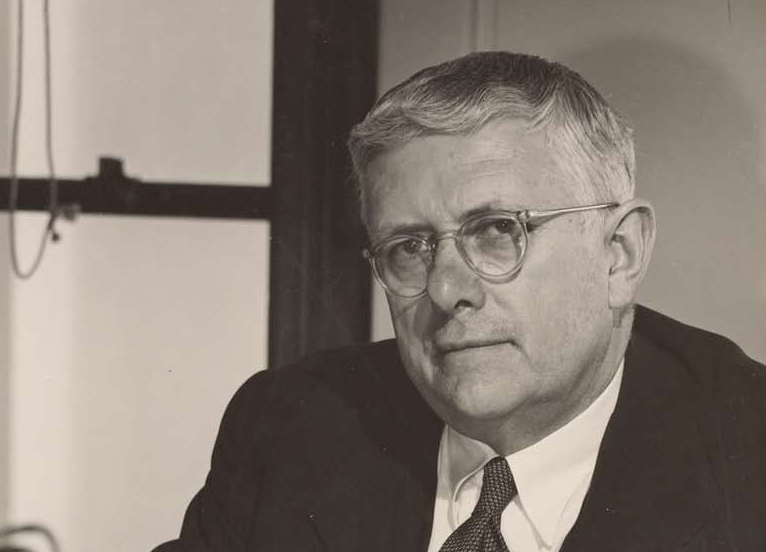Australia/Israel Review
Doc Evatt and the Partition Plan
Nov 28, 2017 | Daniel Mandel

Daniel Mandel
Israel’s creation depended heavily on the actions of H.V. Evatt, the enigmatic Australian statesman who served as president of the UN General Assembly at the time of Israel’s admission to the United Nations. A brilliant jurist and Labor Attorney-General and External Affairs Minister, Evatt first came to international prominence as an architect of the UN Charter at the 1945 San Francisco conference, which saw the world body established. The New York Times named him the “outstanding figure of the conference.”
Evatt then guided the 1947 Palestine partition plan through the UN; in so doing, he transformed the history of the modern Middle East. Yet researching his role is unusually difficult, because Evatt was a cagey individual who kept no diary, corresponded little and had a tendency to appropriate official papers. He was given to spying on his own bureaucracy and engineered friends and associates into positions of power.
The Context
When Evatt became president of the General Assembly, the UN was still in its infancy and was invested with a lot of hope and respect by its then democratic majority. With Palestine turned over to the UN, most governments were reluctant to deal with the problem so an investigative committee composed of representatives from eleven nations, including Australia, was dispatched to investigate.
When this commission reported back it voted seven to three in favour of partition with one abstention – Australia. With his eyes on the UN presidency, Evatt was fearful of alienating the Arab bloc. However, when he lost the vote that year, he was compensated with the chairmanship of the Ad Hoc Committee on the Palestinian Question. As the pressures increased and the State Department manoeuvred to torpedo partition, Evatt moved the competing proposals into two separate sub committees. This allowed a detailed partition plan to be prepared unobstructed by the Arab states and their supporters.
Partition
Evatt’s committee ended up recommending partition to the General Assembly, but only after the narrowest of defeats for an Arab proposal to refer the issue to the International Court of Justice. Evatt insisted on recommending partition before the end of the 1947 General Assembly session. On the last day of its session, November 29, 1947, the Assembly approved partition by a vote of 33 to 13 with 10 abstentions. With the Cold War emerging, this proved the last time that the two superpowers cooperated for years to come.
After Israel’s emergence in May 1948, Evatt opposed tenaciously Britain’s efforts to prevent the entire British Commonwealth from recognising her. In the end, Britain had to bow to the verdict of Israel’s survival on the battlefield and in March 1949, in the last week of Evatt’s presidency of the Assembly, Israel was admitted to the UN.
Jerusalem Internationalised
The idea of internationalising Jerusalem had been made an element of the partition plan, largely at Evatt’s insistence. The reason for his insistence was domestic Australian politics: the Catholic vote, both in Australia and in his own party, was highly influential, evidenced by the fact that 13 of his 20 cabinet colleagues were Catholic, and once the Vatican came out in favour of full internationalisation, Catholic countries supported this stance.
Although Evatt saw that full internationalisation would be very difficult to put into practice and recognised that a war had changed the landscape, he remained committed to the idea of internationalisation. In discussion with the Israeli representative in Australia, he argued that internationalisation would not harm Israel’s interests; what mattered would be how much authority Israel obtained in the territory it sought.
Thus, Evatt introduced a resolution at the UN for Jerusalem’s internationalisation. The sight of Australia, a non-Catholic country, backing the Vatican position pressured Catholic countries into supporting it. However, a key clause in Evatt’s resolution, requiring an international committee to meet in 12 months to review the issue, was omitted in subsequent bargaining. The result was that full internationalisation was adopted, a position that is still advocated in many quarters and which has led most countries not to recognise Jerusalem as Israel’s capital.
Evatt, perhaps more than anyone else, was responsible for the partition plan being navigated through the UN. His role demonstrates the sometimes decisive part played by individuals in affecting the course of history and provides an insight into one of the reasons Jerusalem remains such a vexed issue to this day.
Dr. Daniel Mandel is a Fellow in History at Melbourne University and Director of the Zionist Organisation of America’s Center for Middle East Policy. He is the author of H. V. Evatt and the Establishment of Israel: The Undercover Zionist (Routledge, London, 2004). This above is rappporteur’s summary prepared by Matt de la Fuente, a research assistant at the Middle East Forum, of a talk given by Dr. Mandel in June 2004. © Middle East Forum, reprinted by permission, all rights reserved.
Tags: Australasia






